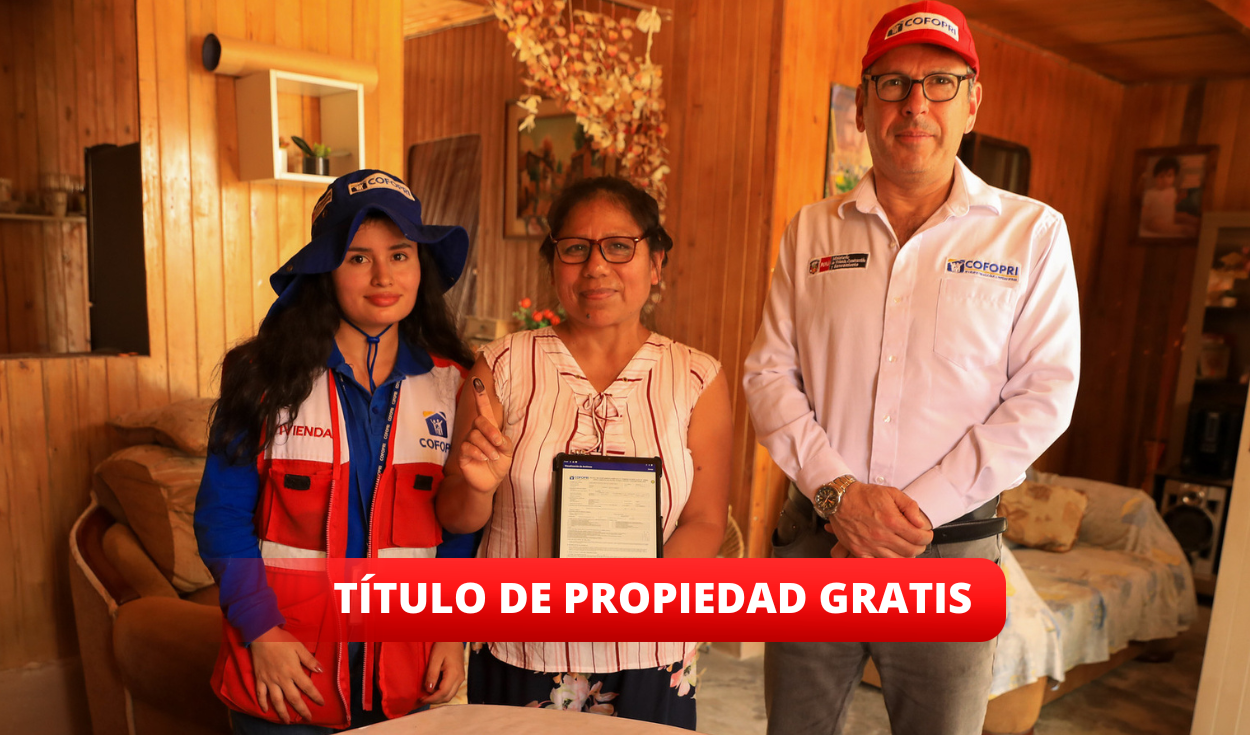
The Informal Property Formalization Body (Cofopri), with the aim of more people obtaining the property title for free, they are carrying out a campaign to increase residential formality and provide state benefits to Peruvian families.
During 2024, teams will be working in various regions to register potential beneficiaries. Interested parties must pay attention to the specific dates and meet certain requirements to be able to participate in this initiative. It is expected that this campaign will reduce informality in housing and improve the well-being of many families.
What homes will not be considered for property titling?
Manuel Montes Boza, director of Cofopri, explained to the Andina Agency that, when giving a property title, its main objective is to protect and preserve the safety of people. Therefore, it is crucial that informal occupations are not in unmitigated danger areas in order to legalize them.
“Our job is to grant property titles to informal occupations in urban areas belonging to the State, as long as the legal requirements are met. In some areas, corrective measures can be taken to reduce the risks, but in others, such as those near rivers prone to landslides, it is impossible to legalize them“, he claimed.
For this reason, Cofopri carries out analysis actions on the territories that wish to legalize. These reports must meet the requirements established by the State to guarantee the safety of the occupants.
“It is crucial to take these prevention efforts into account, and that is why we collaborate closely with the municipalities. They, through the Risk Analysis Reports, determine whether an informal occupation is in a high or low risk area,” he added.
What are the requirements to obtain your FREE property title?
The requirements to obtain a free property title are the following:
- Present original receipts for services such as water, electricity, telephone, tax payments or others that demonstrate occupancy and age in the home.
- Present the original National Identity Document (DNI).
- Present the original purchase-sale contract, public deed, proof of possession or other document that demonstrates ownership of the land.
If you are interested in participating in this campaign, be sure to stay informed through the official Cofopri networks to find out the updates and have all your documents ready on the indicated date.
What evidence can I present to prove my ownership of the land?
It is important to note that, in situations where documents certifying ownership of the property are not available, the enumerator may accept an affidavit from at least four neighbors confirming the person as the owner of the home.
Furthermore, if unforeseen circumstances prevent the presence of the interested party during the registration, they can authorize someone they trust through a simple power of attorney to represent their lot in said process.
The individual formalization stage, which allows each lot to be separated in favor of its holders, is achieved once the technical and legal work necessary for the comprehensive formalization of the settlements and the subsequent registration in the public registries of the corresponding plans has been completed.
This process is carried out collectively, that is, including the entire human settlement or population center, without the need for an individual request from the inhabitants. Initially, a diagnosis and physical-legal sanitation of the area in question is carried out, followed by registration, which is a step within the individual formalization procedure.
Source: Larepublica
Alia is a professional author and journalist, working at 247 news agency. She writes on various topics from economy news to general interest pieces, providing readers with relevant and informative content. With years of experience, she brings a unique perspective and in-depth analysis to her work.











